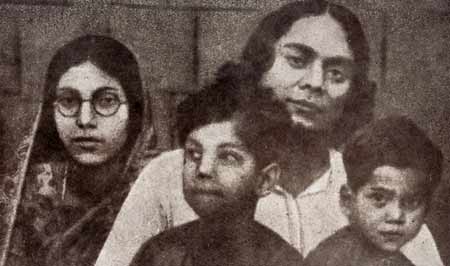|
| Home | History Of Nazrul | A Universal Poet |
 | A Universal Poet | Nazrul is the first and so far only poet to emerge from the rural poor. He was born on 24 May 1899 in Churulia village in West Bengal. At the age of 10, after his father's death, he was forced to take up teaching at the village school. He joined a folk opera troupe, where he not only performed, but started to compose poems and songs. At the age of 11, he returned to school, supplementing his education by working in a local bakery and tea shop. He escaped the rigors of the tea-shop to re-enter school in the Mymensingh District of what is now Bangladesh, later serving in the British Indian Army for three years to the rank of Sergeant. |  | He sang of equality in the 1920's: | "Of equality I sing,
Mankind comes first,
And there is nothing nobler.
Differences of caste or creed,
Of ages or countries
Matter little"
"Of equality I sing,
Where all barriers and differences
Between man and man have vanished,
Where Hindus, Muslims, Buddhists and Christian
Have mingled together."
"Of equality I sing,
Man and woman make little difference to me
Whatever is great and ever beneficial in the world,
Half is created by woman
And the other half by man." | Nazrul was a religious man, but he was absolutely non-communal. Born a Muslim and married to a Hindu, he has been abused and doted on by Hindus and Muslims alike. On a more personal level, Nazrul had to fight another and more exacting war against poverty. Literature did not bring him as much riches as it bought fame, and with poverty came ill-health.
Narul's creative life lasted some twenty years before the onset of cerebral paralysis and silences. He wrote over 3,000 songs; fiery songs for freedom fighters and love songs full of emotion and beauty; devotional songs and poems; sad and sweet Ghazels; and comic and satirical songs too. His range was astonishing. He wrote 21 books of verse and 14 of songs, 6 books of poems and plays for children, 4 books of essays and 3 works of translation. | |
|
|